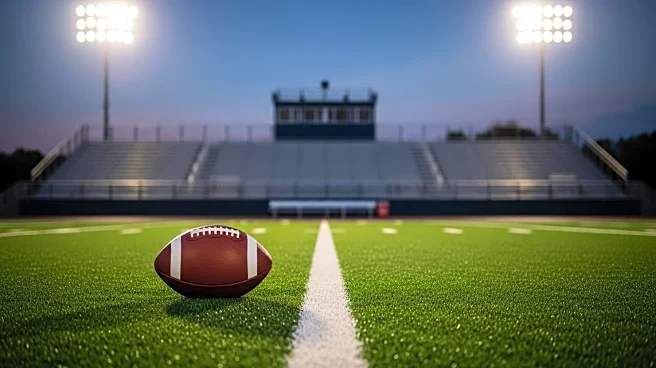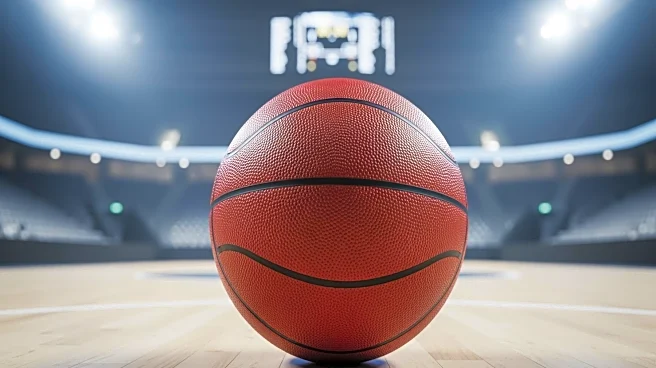What's Happening?
Billy Vigar, a former Arsenal academy player, has died at the age of 21 following a significant brain injury sustained during a non-league match in England. The incident occurred when Vigar collided with a concrete wall while trying to keep the ball in play during a game at Wingate and Finchley. Despite being placed in an induced coma and undergoing surgery, Vigar succumbed to his injuries. Chichester City Football Club, where Vigar was playing, confirmed his passing and requested privacy for his family. Arsenal also expressed their condolences, describing Vigar as a powerful and versatile forward.
Why It's Important?
The tragic death of Billy Vigar highlights the inherent risks associated with contact sports, even at non-league levels. This incident may prompt discussions on safety measures and infrastructure improvements at sports venues to prevent similar accidents. The loss is felt deeply within the football community, as evidenced by the postponement of Chichester City's match and the planned tributes across the Isthmian League Premier Division. The event underscores the need for ongoing attention to player safety and the emotional impact such tragedies have on teams and fans.
What's Next?
In response to Vigar's death, the Isthmian League Premier Division has announced that a moment of silence will be observed before all matches this weekend, and players will wear black armbands in his honor. This tragedy may lead to further evaluations of safety protocols at sports venues, particularly regarding the proximity of hard surfaces to playing areas. Clubs and leagues might consider implementing additional protective measures to safeguard players during matches.
Beyond the Headlines
The incident raises broader questions about the safety standards in lower-tier football leagues and the responsibilities of clubs to ensure player welfare. It may also influence future policies on stadium design and emergency medical response during sporting events. The emotional toll on Vigar's family, teammates, and the wider football community highlights the need for support systems for those affected by such tragedies.









